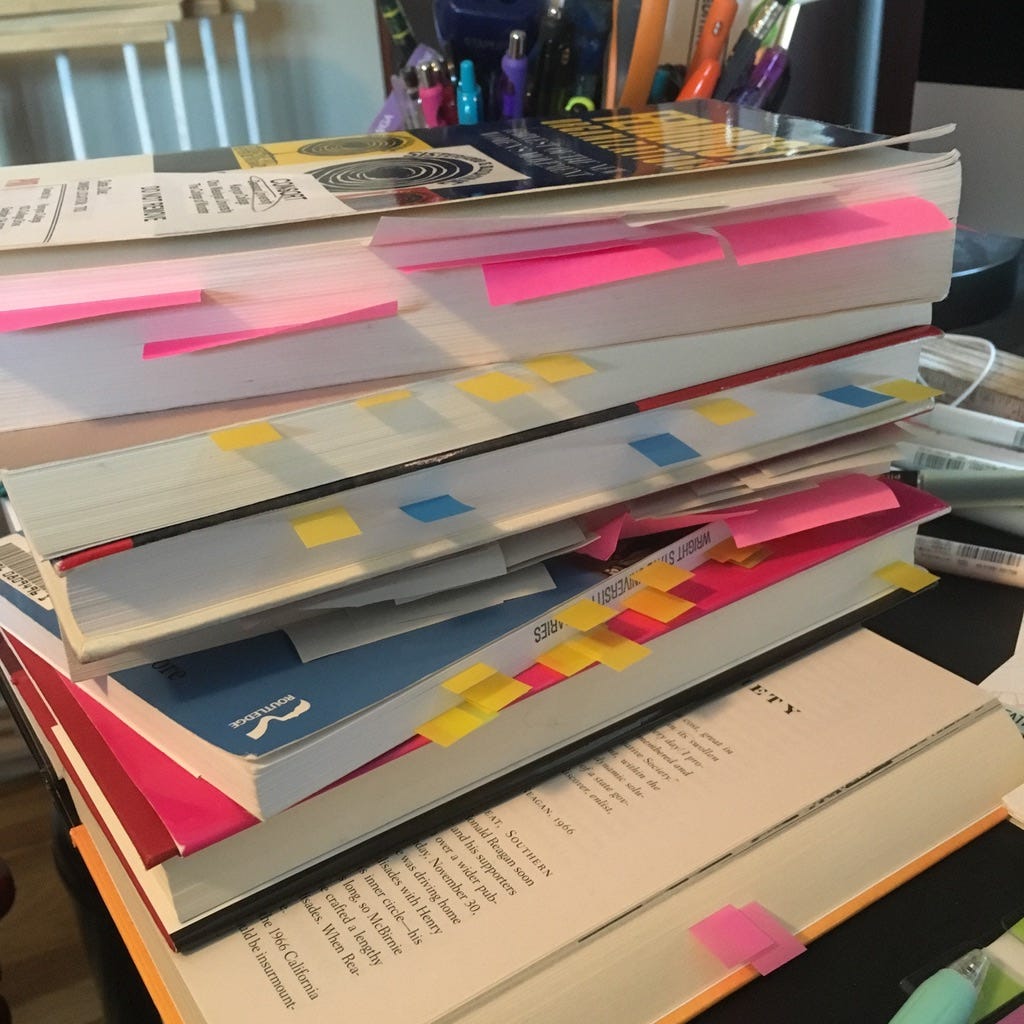Dammit, It Was Right Here A Minute Ago
Organizing Your Research So You Can Find It Again
This is the first in the series Get Your Facts Straight: Research Skills for Writers. For more about this 18-part series, including the complete schedule, click here.
There will be a subscriber-only chat for this post tomorrow (10/11) from 2-4 pm Eastern. Come introduce yourself and your project and let’s talk research!
I am a writer who works with writers, an academic who works with academics, a consultant who works on lots of issues relating to health and human flourishing and quality of life, and a medical information expert who works both with the medical industry and with individuals.1
What these things have in common is that they all involve lots and lots of research. Heaps. Bags. Boatloads. Haystacks. Hogsheads and barrels and jeroboams worth of dates, figures, numbers, places, events, names, items, objects, functions, concepts, and whole entire libraries of reference sources.
Contrary to popular belief, no one teaches you how to organize your research when you earn a Ph.D. Not even in history, where you’d think someone would pull you aside and whisper a few things into your ear about the raggedy-ass state of your notes. “We’re interested in finding things out. If you want to organize things, the Library Science program is over there,” has been more or less the attitude I’ve encountered in academia. Outside of academia, there’s even less attention paid to it.
As a result, every researcher I’ve ever talked to about how they organize their research has had a different system. Systems are invariably hand-rolled, a bit improvisatory, and accordingly quirky. Some are more effective than others.
Fact: there’s no One True Way to do it.
There are certain things that all researchers need to be able to do, though:
document sources
reliably find documents
keep notes in a way that you can find the information you need when you need it
What I’m writing about here is a method that will let you do these things.
What I’m not talking about here are software tools, like Joplin, EndNote, Google Keep, Zotero, and EndNote. I know they exist and appreciate what they have to offer. Use ‘em if you like ‘em.
My method does not require you to use any specialized software to organize your research for the very simple reason that you don’t actually need any if your method is robust. After all, people used index cards and notebooks for generations and they made it work.
I do not in fact recommend pencil and paper for research management. Basic digital tools are better because they are searchable, can include links, and make file sharing and duplication so easy. I use and recommend Google Workplace for this. Google Docs is the workhorse, but you have access to Sheets (spreadsheets) and other tools in that suite if you need them.
With those preliminaries out of the way, a caveat:
There is up-front effort required to establish any organizational system.
I regret to inform you that there is no magic trick, or even a magic software, where you just dump all your reference crap into it willy-nilly and then it telepathically knows what you want when you want it. As the Alaskan artist Ray Troll illustrates so well, there is no such thing as a free lunch.
Still with me? Great. Read on.
Keep reading with a 7-day free trial
Subscribe to Reasons Not to Quit to keep reading this post and get 7 days of free access to the full post archives.






